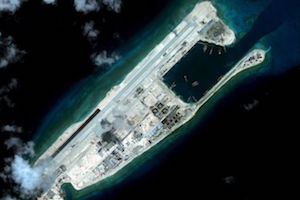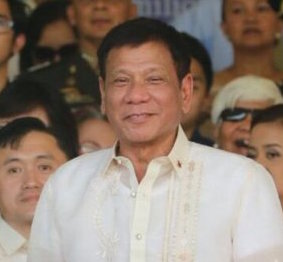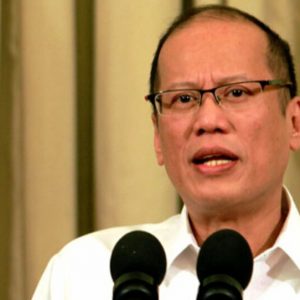A decision issued by the Permanent Court of Arbitration (PCA) at The Hague finally came out early July 2016 and rejected China’s claim that all of the South China Sea including the Spratly Islands and Scarborough Shoal is part of its territory. While it was the Philippines that filed the case with the international tribunal, other neighbouring states like Taiwan, Vietnam, Malaysia and Brunei also claim sovereignty over the territory.
Other nations laying claim to these islands and maritime features have yet to issue their statements about the ruling but China and Taiwan have quickly rejected the decision saying the tribunal does not have jurisdiction over the matter. According to China’s Foreign Ministry Spokesperson Lu Kang, “China will never accept the absurd argument that the illegal conclusion of an unlawful arbitration court is legally binding”.
The disputed areas include the Spratly Islands consisting of two island chains and a dozen-odd rocky outcrops, atolls, sandbanks and reefs, such as the Scarborough Shoal, which is only about 160 kilometres from the Palawan Island, Philippines. Geographically speaking, Filipinos think it makes sense for the Philippines to lay claim over the islands since China is 800 kilometres away from it. Technically speaking, China’s claim is based on a map they presented in the 1940s, which does not even have coordinates. It only shows a dotted boundary, what they refer to as the a nine-dash line, that may have been a mapmaker’s idea of China’s territorial claim, which they say is based on ancient Chinese history. Suffice to say, their claim is too unrealistic. It doesn’t jibe with how nations have formed in today’s world. One can be forgiven for saying China’s map is too ridiculous to even be taken seriously.

The Fiery Cross Reef in the Spratly Islands held by China now appears to be militarised.
Whether China’s claim is ridiculous or not, doesn’t really matter to the Chinese. Since 2012, they have reportedly reclaimed at least 1,295 hectares in the Spratlys. The only thing the other claimants could do was watch in outrage from a distance while China developed the disputed islands into some kind of military zone. Chinese President Xi Jinping defended the move by saying that “The Chinese government must take responsibility to safeguard its territorial sovereignty”.
What is equally outrageous is the fact that the Chinese have forbidden Filipino fishermen from fishing in the surrounding waters since taking over the disputed islands. This has of course greatly affected the livelihood of Filipinos who have fished around the surrounding coastline for centuries. It remains to be seen if the arbitration court’s ruling will give Filipino fishermen the same privilege back soon or ever again.
In its ruling, the international tribunal declared that China’s nine-dash map had no legal basis, that China had acted unlawfully by violating the Philippines’ sovereign rights within its exclusive economic zone (EEZ) which extends to as much as 200 nautical miles out from its nearest coastline. The court also declared that China interfered with Philippine fishing and petroleum exploration. Furthermore, the court also ruled that China did not have the right to build artificial islands there. Any government who had respect for its neighbours disputing the territorial claim would have stopped the reclamation while there was a case filed in the international court. The Chinese government obviously did not respect the Philippines. They ignored the objection and went ahead with their reclamation of the reef without any regard for the damage it was causing to the coral reef environment.

President Rodrigo Duterte has to work with the mess he inherited from the previous administration.
Meanwhile, in the Philippines, the newly-elected President Rodrigo Duterte will be carrying the heavy burden of dealing with China’s hard stance. It has become apparent that the international tribunal does not have the clout nor any power to enforce their ruling on China over the disputed islands. It can condemn China for snubbing them but the Chinese knows that words cannot break their bones. The superpower has probably been working on consolidating its territory for decades. Men in suits from The Hague cannot stop them.
Yes, aside from the headache of dealing with the country’s drug epidemic, high crime rate and cleaning up corruption in government — a legacy of his predecessor former President Benigno Simeon Aquino — the hard work of dealing with the reality that there is not much the Philippines can do but to work around the international court ruling on the islands and China’s hard stance over the disputed islands now rest on Duterte.
The easy part of filing the case with the UN-backed international tribunal was done by Duterte’s predecessor. The BS Aquino government just had to convene a group of “experts” on the matter, hire an international lawyer, pay the bill, file the case and wait for the outcome. Compare that to what Duterte is facing now after the ruling. What he will do next will be judged harshly. There will be some who will say not to be too soft on China lest we be perceived as weak. Some don’t even want to consider a joint exploration with China; as if the country is drowning in options. And there will be some who will say that he cannot be too eager to antagonise them considering that the Philippines does not have the means to go to war if a conflict erupts. The countries that Filipinos assume will back the Philippines over the sea row are now down to issuing lame statements like “China should respect the international court ruling.”
This is a situation that could have been avoided had BS Aquino been more of a diplomat than a nuisance to China. BS Aquino did not appreciate how fragile the country’s relationship was with China when he was at the helm. The relationship between the two countries went pear-shaped on his first year in office. We recall how he refused to apologise for the deaths of eight Chinese tourists after his government bungled a rescue operation during a standoff between the Philippine police and a disgruntled ex-cop who hijacked a tourist bus and held the tourists as hostage at the Luneta Grandstand in Manila in 2010. The Chinese did not forget how he was smiling during a press conference immediately after the tragedy and said he lacked empathy and acted ridiculous.
Manila Times columnist Rigberto Tiglao believes that it was BS Aquino’s adventurism that may have triggered China to rapidly act on their claim on the disputed islands. According to Tiglao, when BS Aquino ordered the frigate BRP Gregorio del Pilar, the country’s only “warship”, to confront the Chinese fishermen at Panatag in 2012, it gave China an excuse to retaliate by sending its own warship to protect its own fishermen. Apart from that, BS Aquino also sent Senator Trillanes to China when the senator “volunteered” to deal with China since he claimed to have had high-level contacts with the Chinese government. Nothing came of the talks between Trillanes and his Chinese contacts though. The discussions remained a secret.

Noynoy Aquino handled the easy part of the South China Sea situation — filing the case at The Hague.
Fast-forward to today, BS Aquino and his minions are patting themselves on the back for what they think is a “historic” and “monumental” win against China after the international arbitration court ruling. Never mind that the ruling did not stipulate that the Philippines (nor China) has sovereignty over disputed islands — only fishing rights and the right to proceed with petroleum exploration. The ruling did not say that the Philippines can lay claim to the disputed islands. BS Aquino and his supporters should keep that in mind. They should hold off on popping open the champagne. Muntinlupa City Representative Rufino “Ruffy” Biazon should not be too eager to file a resolution to give BS Aquino recognition for what he thinks was a successful endeavour in defending the country’s interest in the West Philippine Sea. The irony that seems to escape them is that the international tribunal does not even call it the “West Philippine Sea”. The international community still calls the area the South China Sea.
BS Aquino supporters like Biazon who are calling him a “true patriot” seem to have forgotten or perhaps turned a blind eye to the time BS Aquino was trying to give away parts of Mindanao to the Malaysia-backed terrorist group, the Moro Islamic Liberation Front and the fact that he already gave up on claiming back Sabah. That’s not what some would call a “true patriot”.
The fact is, it was during BS Aquino’s term when China’s reclamation on disputed islands happened. It is even alleged that the soil China used for reclamation came from different parts of the Philippines like Surigao province and Davao Oriental. This activity went on quietly into the night under BS Aquino’s watch. This means Filipinos actually helped the Chinese build the infrastructure the latter is illegally occupying now.
Those who were quick to celebrate the international tribunal ruling remind me of people who celebrated after EDSA people power revolution in 1986. They didn’t realise hard work involved after all that. They do not have the foresight to see what lies ahead. Frankly, if they had any vision, they would have clamoured for prioritising the upgrading the country’s navy and other branches of the military. That way, the Philippines would not be bullied so easily. Bullies only succeed when their target is weak. Unfortunately, that is the case with the Philippines.
http://www.getrealphilippines.com/blog/2016/07/duterte-deal-south-china-sea-mess-aquino-left-unresolved/

No comments:
Post a Comment